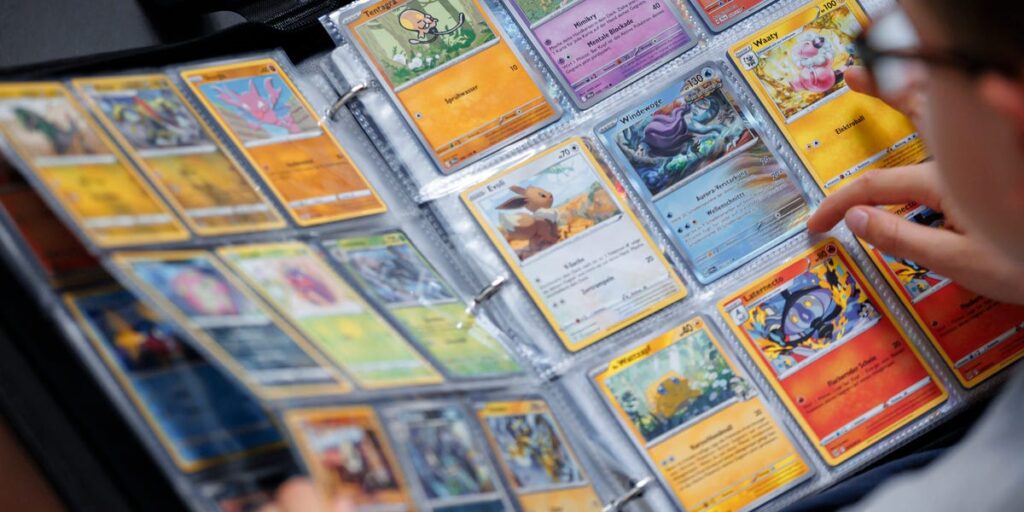I’m not a financial advisor, but I am a lawyer who’s spent enough time around markets to know how unpredictable they can be.
I recently had some extra cash, and I wanted to invest it in something unique. I didn’t want to put the money into the volatile stock market, bonds, crypto, or even real estate.
When I ran out of options, I turned to an unlikely guide for help and found an even more unlikely answer.
I turned to AI to help me invest
AI has been working well for me lately — helping me plan trips, organize work, and even write better, so I wanted to see what it could do with money.
The prompt in ChatGPT was simple: “Tell me something creative to invest in, something most people wouldn’t consider.”
It started its answer with a disclaimer: “This is by no means financial advice.”
After that, the AI thought for a moment and then confidently told me to buy trading cards, specifically Pokémon cards.
At first, I laughed. It sounded like the setup to a bad meme: AI gives you advice a 10-year-old could have written. But the longer I talked to the AI bot, the more serious the plan sounded.
ChatGPT listed reasons such as scarcity, cultural value, nostalgic demand, and even intellectual property durability. It cited data that shows the cards can rival the S&P 500.
In short, the AI pitched me a hedge fund made of cardboard and childhood.
I fell down the rabbit hole of Pokémon investing
The Pokémon trading-card world turned out to be far more sophisticated than I expected. There are first-edition base sets from the late 1990s, Japanese exclusives, holographic “shadowless” variants, and reprints that only collectors can tell apart. The market runs on rarity and condition; the slightest scratch or off-center print can cut a card’s value in half.
Professional grading companies such as PSA, Beckett, and CGC inspect every detail and assign ratings from 1 to 10. A perfect “Gem Mint 10” can sell for thousands, sometimes tens of thousands, of dollars. Even new releases are graded, bought, and resold within days — a kind of day trading for nostalgia.
Unopened booster packs and sealed starter decks have also become their own asset class. Collectors buy them purely for potential, hoping a rare card hides inside. Prices rise as sealed boxes become harder to find.
Online tools now track card prices and sealed-pack indexes that look like stock charts, plotting Charizard’s rise like Apple stock. It felt less like childhood collecting and more like a miniature Wall Street, powered by nostalgia instead of earnings reports.
I searched for my old cards and hunted for new ones
I needed to start somewhere that wouldn’t be too expensive. If I were going to follow ChatGPT’s investment advice, it made sense to begin at the lowest possible risk level, the kind of test that wouldn’t make me regret trusting a chatbot with money.
The first thing I did was call my mom in Mexico. I was sure that somewhere under my old bed there was a shoebox full of Pokémon cards, the kind every millennial secretly hopes survived. She found it, still taped shut, and sent me photos.
Most of the cards were in rough shape, but one stood out: an Eon Ticket, a promotional card from the Ruby & Sapphire era that collectors trade online for some money. I’ve since listed it on eBay for $300.
Then I started looking for new cards myself. I thought it would be easy, like it was 20 years ago when every store sold them. It wasn’t. After checking several shops around London, I finally found two starter decks, both from recent editions and among the most common types.
I decided the best way to test ChatGPT’s idea wasn’t to open them but to leave them sealed and see if they gained value over time.
AI might not understand markets, but it understands us
Somewhere in that process, I realized the AI hadn’t actually given me a bad answer. It had simply mirrored us: our obsession with nostalgia, with collecting, with owning little pieces of our past.
AI may not understand markets the way we do, but it understands patterns — how emotion drives value, how stories become currency, and how scarcity turns sentiment into profit.
It probably didn’t tell me to buy Pokémon cards because they’re the next bitcoin. It told me because they represent the same thing all markets are built on: belief.
I’m not saying you should invest in Pokémon cards (though if you find an EON Ticket lying around, maybe check eBay). But sometimes the smartest algorithm in the room still leads you back to something surprisingly human.
Read the full article here


